The Pittsburgh Pirates are a professional baseball team based in Pittsburgh, competing in MLB's National League Central Division. Founded in 1881 as the Allegheny Base Ball Club, they joined the National League in 1887. The Pirates have a history that includes five World Series championships, nine National League pennants, and nine National League East division titles. They were part of the National League East from 1969 to 1993 and have made three Wild Card Game appearances.
1901: Won consecutive National League pennants
From 1901, the Pittsburgh Pirates won three consecutive National League pennants.
1903: Hosted first modern World Series
In 1903, Exposition Park hosted the first modern World Series ever played.
1903: Played in the inaugural World Series
In 1903, the Pittsburgh Pirates played in the inaugural World Series, marking an early highlight in their history.
1909: Won World Series and moved to Forbes Field
In 1909, the Pittsburgh Pirates won the World Series against the Detroit Tigers and moved from Exposition Park to Forbes Field.
1909: Won first title behind Honus Wagner
In 1909, the Pittsburgh Pirates won their first World Series title, led by Honus Wagner.
1909: Moved from Exposition Park
The Pittsburgh Pirates moved from Exposition Park in the middle of the 1909 season.
1912: Fenway Park built
Fenway Park was built in 1912 and is the oldest stadium currently used by a major league team.
1912: Team Name on Jersey
In 1912, the Pirates' name was first acknowledged on a pinstripe jersey, running vertically down the placket.
1912: First Acknowledgment of "Pirates" Nickname on Uniforms
In 1912, the Pittsburgh Pirates acknowledged the "Pirates" nickname on the team's uniforms for the first time.
1914: Jackie Robinson Ballpark Opening
In 1914, Jackie Robinson Ballpark in Daytona Beach opened. LECOM Park is the second-oldest minor league park behind Jackie Robinson Ballpark.
1917: Disastrous season
In 1917, the Pittsburgh Pirates had a disastrous season, with a 51–103 record.
1920: Exposition Park razed
Prior to 1920, Exposition Park was razed.
August 5, 1921: First baseball game broadcast
On August 5, 1921, the first baseball game was broadcast over the radio, with Harold Arlin announcing a Pirates game on KDKA from Forbes Field.
1923: LECOM Park Constructed
LECOM Park was constructed in 1923. It's the oldest stadium still in use for Spring Training.
1924: Brief Change to Black and Gold
In 1924, the Pirates made a similar change to black and gold, but it did not last beyond that season.
1925: Bill McKechnie leads Pirates
In 1925, Bill McKechnie led the Pirates.
1925: Forbes Field Expansion
In 1925, Forbes Field's capacity was expanded to 41,000, almost doubling its initial capacity from 1909.
1925: Won second title in World Series
In 1925, the Pittsburgh Pirates won their second World Series title, becoming the first team to come back from a 3–1 deficit in the World Series.
1927: Returned to the World Series
In 1927, the Pittsburgh Pirates returned to the World Series but were swept by the Murderer's Row Yankees.
1933: Team Name on Road Uniforms
In 1933, the team's name appeared on the road uniforms, written horizontally in an ornate style.
May 25, 1935: Babe Ruth's Final Home Runs
On May 25, 1935, Forbes Field hosted the final three home runs of Babe Ruth's legendary career.
1936: Rowswell joined the broadcast team
In 1936, Rosey Rowswell joined the Pirates' broadcast team.
1936: Regular Broadcasts and Rosey Rowswell
Regular Pirates broadcasts began in the mid-1930s, and in 1936, Rosey Rowswell became the voice of the Pirates.
1938: Missed the pennant
In 1938, the Pittsburgh Pirates failed to win the pennant, coming closest when they were passed by the Chicago Cubs in the final week of the season.
1940: Pirate Head Image on Jerseys
In 1940, an image of a pirate's head appeared on the home and road jerseys.
1941: Pirate Head Image on Jerseys
In 1941, an image of a pirate's head appeared on the home and road jerseys.
1948: Adoption of Black & Gold Color Scheme
In 1948, the Pittsburgh Pirates adopted the current black & gold color scheme to match the colors of the Flag of Pittsburgh and, to a lesser extent, the colors of the Pittsburgh Steelers.
1948: Adopted black, gold and white team colors
Since 1948, the Pittsburgh Pirates' colors have been black, gold, and white.
1953: Milwaukee County Stadium opened
In 1953, Milwaukee County Stadium opened, prior to PNC Park being the first two-deck ballpark built in the United States.
February 1955: Prince Becomes Lead Play-by-Play Man
In February 1955, Bob Prince became the lead play-by-play man after Rosey Rowswell died.
1957: KDKA-TV Broadcasts
Starting in 1957, KDKA-TV began airing Pirates games for 38 years.
1960: Mazeroski's World Series Home Run
In 1960, Forbes Field hosted Bill Mazeroski's championship-winning home run in Game 7 of the World Series.
1960: Won World Series against the New York Yankees
In 1960, the Pittsburgh Pirates won the World Series against the New York Yankees with a walk-off home run by Bill Mazeroski in Game 7, the only time that Game 7 of the World Series has ever ended with a home run.
1960: Won World Series on Mazeroski's Walk-Off Home Run
In 1960, the Pittsburgh Pirates won the World Series against the Yankees with a walk-off home run by Bill Mazeroski in Game 7.
1961: First African-American Coach
In 1961, Gene Baker broke the color line, becoming the first African-American coach in baseball for the Pittsburgh Pirates.
1962: First African-American Manager
In 1962, Gene Baker became the first African-American manager in baseball.
September 21, 1963: First African-American Manager in MLB
On September 21, 1963, Gene Baker became the first African-American manager in MLB when he filled in for Danny Murtaugh.
1969: Joined National League East
In 1969, the Pittsburgh Pirates became a member of the National League East division.
1969: Start of Spring Training at LECOM Park
Since 1969, the Pirates have held Spring Training at LECOM Park in Bradenton, Florida.
1969: Phillies and Pirates together after the National League split
The Phillies and the Pirates remained together after the National League split into two divisions in 1969.
1970: Played at Three Rivers Stadium
From 1970, the Pittsburgh Pirates played at Three Rivers Stadium.
1970: Switch to Darker Gold and New Uniform Set
In 1970, coinciding with the move into Three Rivers Stadium, the Pittsburgh Pirates switched to a darker shade of gold, changed their caps from black to gold with a black brim, and introduced pullover nylon/cotton jerseys and beltless pants as part of their new uniform set.
1970: Won National League East
In 1970, the Pittsburgh Pirates won the newly created National League East.
1970: Departure from Forbes Field
Midway through the 1970 season, the Pittsburgh Pirates left Forbes Field. The stadium was demolished the following year.
September 1, 1971: First all-minority lineup
On September 1, 1971, Danny Murtaugh assembled the first all-minority starting lineup in MLB history.
1971: Won World Series and Fielded All-Black and Latino Lineup
In 1971, the Pittsburgh Pirates won the World Series against the Baltimore Orioles. On September 1, the Pirates became the first team to field an all-Black and Latino lineup.
1971: Won World Series behind Roberto Clemente
In 1971, the Pittsburgh Pirates won the World Series, led by Roberto Clemente, the first Latin-American enshrined in the National Baseball Hall of Fame.
1972: Won National League East
In 1972, the Pittsburgh Pirates won the newly created National League East.
1975: Prince and King Fired
In 1975, Bob Prince and Nellie King were fired, angering the Pirates' fanbase.
1976: Hamilton and Frattare took over broadcasting
In 1976, Milo Hamilton and Lanny Frattare took over as the new broadcast team.
1976: Pillbox Hats for National League Anniversary
In 1976, to coincide with the National League's 100th anniversary, certain NL teams wore old-style pillbox hats complete with horizontal pinstripes; the Pirates adopted them permanently after the season.
1977: Brighter Gold Shade and Third Jerseys
In 1977, the Pittsburgh Pirates switched back to a brighter shade of gold and became one of the first teams to wear third jerseys, with uniform styles including two different caps and three different uniforms.
1979: Last World Series Win
In 1979, the Pirates won their last World Series, beginning a period of struggle for the team.
1979: Four Different Uniform Combinations
In 1979, the Pirates wore four different uniform combinations in the World Series.
1979: Won World Series under Willie Stargell
In 1979, the Pittsburgh Pirates won the World Series under the leadership of Willie Stargell.
1980: Pinstripes Removed from White Uniforms
In 1980, the pinstripes were removed from the white uniforms, but the Pirates continued to utilize the three uniform set.
1983: Blass Started as Color Analyst
In 1983, Steve Blass started working as a color analyst for the team.
1985: Pittsburgh Drug Trials
In 1985, the Pittsburgh drug trials contributed to a decline in the team's popularity in the city.
1985: Return to Home Whites/Road Grays Combination
In the 1985 season, the Pittsburgh Pirates returned to the straightforward home whites/road grays uniform combination.
1986: Jim Leyland's managerial debut
In 1986, Jim Leyland started his tenure as the manager of the Pittsburgh Pirates.
1986: Cable Television Outlet KBL
In 1986, the Pirates' cable television outlet began broadcasting, initially known as KBL.
1987: Return of Solid Black Cap
In 1987, the solid black cap with a gold "P" returned and has been the team's primary cap ever since.
1990: Script wordmarks on the road jerseys
Script wordmarks had previously been seen on the road jerseys from 1990 until 2000.
1991: Penguins Stanley Cup Win
In 1991, the Pittsburgh Penguins won the Stanley Cup, further overshadowing the Pirates.
1991: Return to Button-Down Style
In 1991, the Pittsburgh Pirates ditched the pullover style in favor of the traditional button-down style, one of the last teams to switch.
1992: Stanley Cup Celebration at Three Rivers Stadium
In 1992, after winning the Stanley Cup, the Penguins held a celebration at the Pirates' old home, Three Rivers Stadium.
1992: Penguins Stanley Cup Win
In 1992, the Pittsburgh Penguins won the Stanley Cup, further overshadowing the Pirates.
1993: Two-division play ends
During the period of two-division play (1969–1993), the two National League East division rivals won the two highest numbers of division championships.
1993: LECOM Park Renovations
In 1993, LECOM Park underwent major renovations.
1993: Began 20-Season Losing Streak
In 1993, the Pittsburgh Pirates began a streak of 20 consecutive losing seasons, setting a record in MLB and major North American professional sports leagues.
1993: Left National League East
In 1993, the Pittsburgh Pirates ceased to be a member of the National League East division.
1994: Moved to the National League Central
After the Pirates moved to the National League Central in 1994, the teams face each other only in two series each year and the rivalry has diminished.
1994: Greg Brown and Bob Walk Joined
In 1994, Greg Brown and Bob Walk both joined the broadcast booth as the longest-tenured broadcasters.
1994: KDKA-TV Broadcasts Ended
In 1994, KDKA-TV ended airing Pirates games, after 38 years.
1994: Rivalry Diminished
The rivalry between the Philadelphia Phillies and the Pirates was considered by some to be one of the best rivalries in the National League until 1994.
1995: WPXI Broadcasts
In 1995, WPXI began airing Pirates games.
1996: Addition of Third Jersey and Red Accent Color
After Kevin McClatchy purchased the team in 1996, the Pirates added a third jersey and utilized red as an accent color, including red brims on the team's caps.
1996: End of Jim Leyland's tenure
In 1996, Jim Leyland's tenure as the manager of the Pittsburgh Pirates concluded.
1996: WPXI Broadcasts Ended
In 1996, WPXI ended airing Pirates games.
1997: Annual Series against the Guardians
From 1997, the Pirates and Cleveland Guardians played a three-game series each year.
1997: WPGH-TV and WCWB Broadcasts
In 1997, Pirates games began airing on WPGH-TV and WCWB.
1997: Return of Red as Accent Color
In 1997, red returned as an accent color for the Pirates.
October 1, 2000: Final Game at Three Rivers Stadium
On October 1, 2000, the Pittsburgh Pirates played their final game at Three Rivers Stadium.
2000: Script wordmarks on the road jerseys
Script wordmarks had previously been seen on the road jerseys from 1990 until 2000.
2000: Ended playing at Three Rivers Stadium
Until 2000, the Pittsburgh Pirates played at Three Rivers Stadium.
2001: End of Annual Series against the Guardians
In 2001, the Pirates and Cleveland Guardians concluded their annual three-game series.
2001: Started Playing Home Games at PNC Park
Since 2001, the Pittsburgh Pirates have played their home games at PNC Park.
2002: Periodic Games against the Guardians
From 2002, the Pirates and Cleveland Guardians played periodically in years when the AL Central played the NL Central.
2002: End of Over-the-Air Coverage
In 2002, over-the-air coverage of the Pirates ended.
2005: Sleeveless White Alternate Home Jersey
From 2005 to 2010, a sleeveless white jersey with pinstripes was worn as an alternate home jersey.
2005: Jim Leyland becomes Tigers Manager
In 2005, Jim Leyland became the manager of the Detroit Tigers after managing the Pirates for a decade.
2005: John Wehner Joined Broadcast Crew
In 2005, former Pirate and Pittsburgh native John Wehner joined the broadcast crew as an analyst.
2007: Red Alternate Jersey Added
For the 2007 and 2008 seasons, a red alternate jersey was added for the Pittsburgh Pirates.
2007: Move to WPGB
In 2007, the Pirates ended their long relationship with KDKA and moved to FM talk radio station WPGB to reach a younger demographic.
2008: Red Alternate Jersey
For the 2007 and 2008 seasons, a red alternate jersey was added for the Pittsburgh Pirates.
2008: LECOM Park Renovations and Lights Added
In 2008, LECOM Park underwent major renovations, including the addition of lights.
2008: Frattare's Final Season
In 2008, Lanny Frattare completed his tenure, becoming the longest tenured play-by-play man in team history.
2009: Crosby Brings Stanley Cup to PNC Park
Following the Pittsburgh Penguins' Stanley Cup win in 2009, captain Sidney Crosby brought the cup to PNC Park.
2009: Neverett Replaces Frattare
In 2009, Tim Neverett replaced Lanny Frattare as the play-by-play announcer.
2009: End of Red as Accent Color
In 2009, red remained until as accent color.
2009: Penguins Stanley Cup Win
In 2009, the Pittsburgh Penguins won the Stanley Cup, further overshadowing the Pirates.
2009: Alternate Black Jersey
In 2009, the Pittsburgh Pirates began wearing an alternate black jersey with a gold "P" at both home and on the road.
2010: End of Sleeveless White Alternate Home Jersey
From 2005 to 2010, a sleeveless white jersey with pinstripes was worn as an alternate home jersey.
October 1, 2011: Clear Channel Deal Ended
On October 1, 2011, Clear Channel announced they would not renew their deal with the Pirates.
2012: Home Plate and First Base Marked at Former Stadium
In 2012, members of the Society for American Baseball Research marked and painted the home plate and first base of the former Three Rivers Stadium on the 40th Anniversary of Roberto Clemente's 3,000th hit.
2012: End of 20-Season Losing Streak
In 2012, the Pittsburgh Pirates ended their streak of 20 consecutive losing seasons.
2013: National League Division Series
From 2013 to 2015, the Pirates battled with the St. Louis Cardinals for the Central Division title, with the Cardinals narrowly winning the division each year. The two teams faced off in the 2013 National League Division Series, which the Cardinals won in five games.
2013: Throwback Uniforms
From 2013 to 2015, the Pirates wore throwback uniforms for Sunday home games, using the early 70s pullover uniforms.
2013: End of Leyland's managerial role
In 2013, Jim Leyland concluded his time as the manager for the Detroit Tigers.
2013: End of Losing Streak and Fan Support
In 2013, the Pittsburgh Pirates ended their 20-season losing streak, leading to increased fan support, though the team remained third in popularity behind the Steelers and Penguins.
2013: Victory in National League Wild Card Game
In 2013, the Pittsburgh Pirates had a victory in the National League Wild Card Game, marking a rare postseason advancement during their period of struggle.
2013: Returned to Postseason and Reached 10,000 All-Time Wins
In 2013, the Pittsburgh Pirates returned to the postseason, defeating the Cincinnati Reds in the Wild Card Game, and became the seventh MLB team to reach 10,000 all-time wins.
2013: Postseason Game
The Pirates' biggest divisional rival is the Cincinnati Reds, given the two teams' proximity, the carryover of the cities' football rivalry, and the fact that the Reds and Pirates have met six times in the postseason, most recently in the 2013 National League Wild Card Game.
2014: Returned to Postseason
In 2014, the Pittsburgh Pirates returned to the postseason and lost the Wild Card game.
2014: Wild Card spot
The Pirates had a contentious battle with the Milwaukee Brewers for a Wild Card spot in 2014.
2015: End of Throwback Uniforms
From 2013 to 2015, the Pirates wore throwback uniforms for Sunday home games, using the early 70s pullover uniforms.
2015: Hosted National League Wild Card Game
In 2015, PNC Park hosted the National League Wild Card Game, where the Cubs defeated the Pirates 4–0 in front of 40,889 fans.
2015: Neverett called his final game
In 2015, Tim Neverett called his final Pirates game.
2015: Reached 10,000 losses on Opening Day
On Opening Day 2015, the Pittsburgh Pirates' loss marked the team's 10,000th loss, making them the fourth MLB team to achieve this distinction.
2015: Alternate Camo Jersey
Since the 2015 season, the Pittsburgh Pirates have worn an alternate camo jersey for select home games.
March 2, 2016: New Deal Reached
On March 2, 2016, a new deal was reached for the Pirates to remain on KDKA-FM.
2016: Pirates average 7.22 rating on primetime TV broadcasts
During the 2016 season, the Pirates averaged a 7.22 rating and 83,000 viewers on primetime TV broadcasts.
2016: Gold Top/Black Pants Throwback Uniforms
From 2016 to 2019, the Pirates wore throwback uniforms for Sunday home games, using the gold top/black pants from the late 70s.
2016: Joe Block Became Second Play-by-Play Announcer
In 2016, Joe Block became the team's second play-by-play announcer, after previously working for the Milwaukee Brewers.
2016: Penguins Stanley Cup Win
In 2016, the Pittsburgh Penguins won the Stanley Cup, further overshadowing the Pirates.
2017: Stanley Cup at PNC Park
In 2017, after the Penguins won the Stanley Cup, the cup was brought to PNC Park, and the team threw out the first pitch.
2017: Penguins Stanley Cup Win
In 2017, the Pittsburgh Penguins won the Stanley Cup, further overshadowing the Pirates.
2017: LECOM Park Renamed
Since 2017, the park has been named for the Lake Erie College of Osteopathic Medicine.
2018: Updated Camouflage Alternates
For the 2018 season, the camouflage alternates were updated, now white with camo green wordmarks, numbers, piping, and patches.
2018: Fan Relations Deterioration
In 2018, despite contending for the NL Central, fan relations deteriorated following the Andrew McCutchen trade, with the team ranking 27th in attendance.
June 12, 2019: Bill Mazeroski the lone survivor with retired number
As of June 12, 2019, Bill Mazeroski is the lone survivor of the Pittsburgh Pirates whose numbers are retired.
2019: End of Throwback Uniforms
From 2016 to 2019, the Pirates wore throwback uniforms for Sunday home games, using the gold top/black pants from the late 70s.
2019: Blass Retirement
In 2019, Steve Blass retired as color analyst for the team.
January 24, 2020: Unveiling of New Road Jerseys
On January 24, 2020, the Pittsburgh Pirates revived the script "Pittsburgh" wordmarks on their gray road and new black alternate road jerseys.
2020: Six Games against the Guardians
In 2020, MLB implemented an abbreviated schedule focusing on regional match-ups and the Pirates and Cleveland Guardians played six games.
2022: Periodic Games against the Guardians
In 2022, the Pirates and Cleveland Guardians continued playing periodically in years when the AL Central played the NL Central.
2022: Inaugural Team Hall of Fame
In 2022, the Pirates established a team Hall of Fame honoring influential figures in Pittsburgh baseball history, including Negro league players who played in Pittsburgh.
December 16, 2023: Pirates Became Joint Owners of SportsNet Pittsburgh
On December 16, 2023, the Pirates became joint owners of SportsNet Pittsburgh, with operations to be produced by NESN.
2023: Renewed Annual Series against the Guardians
Beginning in 2023, the Pirates and Cleveland Guardians will play a three-game series each season due to the new balanced schedule.
2023: Camo Home Alternate Retired and City Connect Uniform Unveiled
In 2023, the Pirates retired the camo home alternate to comply with the new "4+1" rule and unveiled their City Connect uniform, featuring a gold top and black pants with a gold "P" cap with black brim. The jersey itself features the abbreviation of Pittsburgh "PGH".
2024: Mazeroski's home run only Game 7 walk-off in WS history
As of 2024, Bill Mazeroski's 1960 home run remains the only Game 7 walk-off home run in World Series history.
2025: Overall Record
From 1882 to 2025, the Pittsburgh Pirates have an overall record of 10,910–10,910–140 (.500 winning percentage).
Mentioned in this timeline
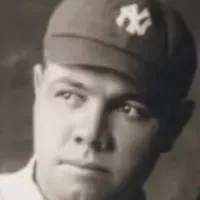
Babe Ruth nicknamed the Bambino and the Sultan of Swat...
CBS Broadcasting Inc CBS is a prominent American commercial broadcast...
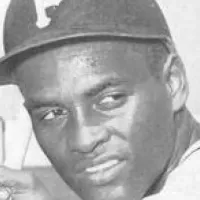
Roberto Clemente was a celebrated Puerto Rican baseball player for...
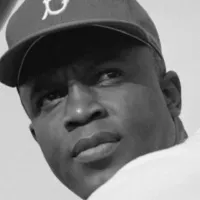
Jackie Robinson was an American professional baseball player who broke...

Sidney Crosby a Canadian professional ice hockey centre and captain...
The National Broadcasting Company NBC is a major American commercial...
Trending

3 months ago Alcaraz vs Fritz Clash at ATP Finals 2025: A Minute-by-Minute Look

2 months ago Japan-China tensions rise: Japan warns citizens, Chinese travelers cancel flights. Crisis deepens.

2 months ago Carlos Alcaraz Honored as ATP Year-End No. 1 After Finals Win

Jerome Max Keli'i Holloway is an American professional mixed martial artist competing in the UFC's Featherweight and Lightweight divisions A...
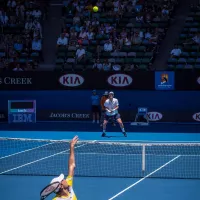
4 months ago Muratori wins ITA Regional Singles Championship, Gonzalez runner-up in Doubles, Women's Tennis wraps up
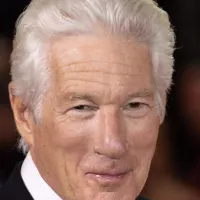
2 months ago Richard Gere and Wife Alejandra Silva Make Rare Red Carpet Appearance in Madrid.
Popular

Thomas Douglas Homan is an American law enforcement officer who...

XXXTentacion born Jahseh Dwayne Ricardo Onfroy was a controversial yet...

William Franklin Graham III commonly known as Franklin Graham is...

Jupiter is the fifth and largest planet from the Sun...

Instagram is a photo and video-sharing social networking service owned...

Martin Luther King Jr was a pivotal leader in the...